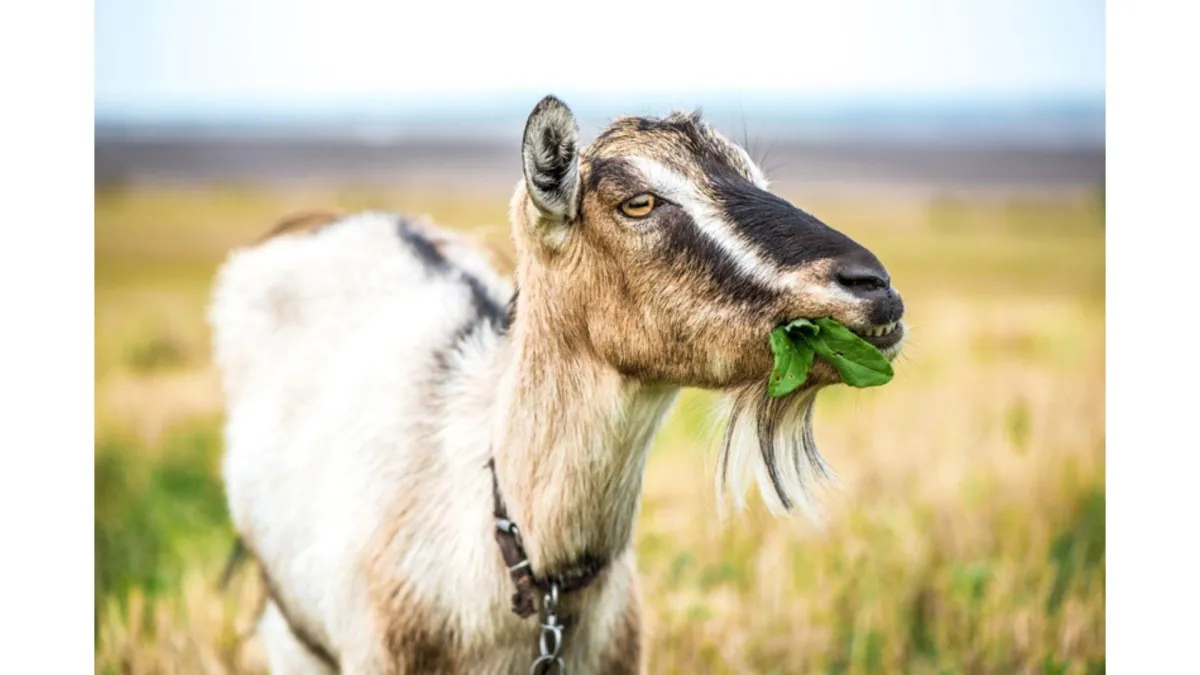
Plants that poison goats
Plants that poison goats
Types of Poisonous Plants and Their Effects
Plants That Cause Diarrhoea in Goats
Plants That Cause Internal Bleeding
Plants That Cause Photosensitivity
Plants That Cause Frothy Bloat
Plants That May Cause Goitre or Stillbirth
Plants That Influence Oestrus or Reproductive Health
Other Plants Listed as Dangerous by the British Goat Society
Emergency Treatment for Suspected Plant Poisoning
Goats are natural browsers and will sample all sorts of shrubs and trees if given the chance. Unfortunately, many common plants can be toxic, especially ornamental garden varieties. It is safest to assume that all garden shrubs could be dangerous to goats unless proven otherwise.
Some plants cause immediate poisoning, while others build up toxins over time. For example, ragwort and St John's wort can cause delayed effects. Others, like ragwort, remain toxic even when dried in hay.
This guide outlines common plant poisonings in goats by symptom type, followed by treatment recommendations.
Types of Poisonous Plants and Their Effects
Plants That Cause Diarrhoea in Goats
Hemlock
Oak (young leaves)
Wild arum
Castor seed (in feed contaminants)
Foxglove
Water dropwort
Box hedge
Green potato
Linseed
Plants That Cause Internal Bleeding
Bracken fern
Plants That Cause Nervous Signs or Seizures
Ragwort
Hemlock
Water dropwort
Potato
Black nightshade
Male fern
Rhododendron
Laburnum
Rape
Rhubarb
Common sorrel
Prunus species (e.g. plum, cherry)
Plants That Cause Photosensitivity
Ragwort
St John’s wort
Buckwheat
Plants That May Cause Sudden Death
Yew
Rhododendron
Laurel
Linseed
Foxglove
Water dropwort
Plants That Cause Frothy Bloat
Legumes such as clover and lucerne (especially when lush and wet)
Plants That Cause Anaemia
Rape
Kale
Plants That Cause Constipation
Oak (acorns and old leaves)
Linseed
Plants That Cause Vomiting
Rhododendron
Azalea
Pieris
Black nightshade
Gladiolus corms
Daffodil bulbs
Plants That May Cause Goitre or Stillbirth
Brassica species (e.g. cabbage, kale)
Linseed
Some clovers
Plants That Influence Oestrus or Reproductive Health
Certain clovers
Plants That Discolour Urine
Bracken
Oak
Rape
Kale
Cabbage
Brussels sprouts
Other Plants Listed as Dangerous by the British Goat Society
Mayweed
Old man’s beard
Charlock
Bryony
Woody nightshade
Deadly nightshade
Honeysuckle
Fool’s parsley
Buttercup
Anemone
Lesser celandine
Garden bulbs (e.g. daffodil, tulip, aconite)
Walnut and Oak (particularly leaves and acorns)
Emergency Treatment for Suspected Plant Poisoning
If you suspect your goat has eaten a poisonous plant, contact your veterinarian immediately. While waiting for veterinary help, the following steps may help reduce the effects:
Remove the Goat from the Source
Remove access to the plant and carefully clear any plant material from the goat's mouth.
Encourage Movement
Walk the goat slowly to discourage it from settling and ruminating.
Activated Charcoal
If available, administer activated charcoal mixed with water to help absorb toxins. This is more effective than older remedies like cold tea.
Avoid Giving Tea with Tannins for Some Poisons
While tannic acid in tea may help bind some alkaloids, it can make things worse in acorn poisoning, which already involves high tannin levels.
Avoid Dosing Vomiting Goats
If the goat is actively vomiting, do not administer fluids orally.
Do Not Use Liquid Paraffin Without Veterinary Advice
Liquid paraffin was once commonly used but is now discouraged unless prescribed.
Keep the Goat Quiet and Warm
Minimise stress, and keep the goat in a quiet, sheltered space.
Identify the Plant
Try to identify what the goat has eaten and provide a sample or photo to your vet. Knowing the toxin helps determine the right treatment.
Prevention is Better Than Cure
Regularly inspect pastures, hedgerows, and gardens for toxic plants.
Don’t throw garden clippings into goat paddocks.
Educate family and visitors about the risk of poisoning.
Fence off high-risk areas or use electric fencing to keep goats away.
Want to Learn More About Goat Care?
If you're starting with goats or want to be better prepared for emergencies, our What You Need to Know to Keep Goats course covers health, nutrition, shelter, fencing, and common risks, like plant poisoning. Designed specifically for lifestyle block owners.

